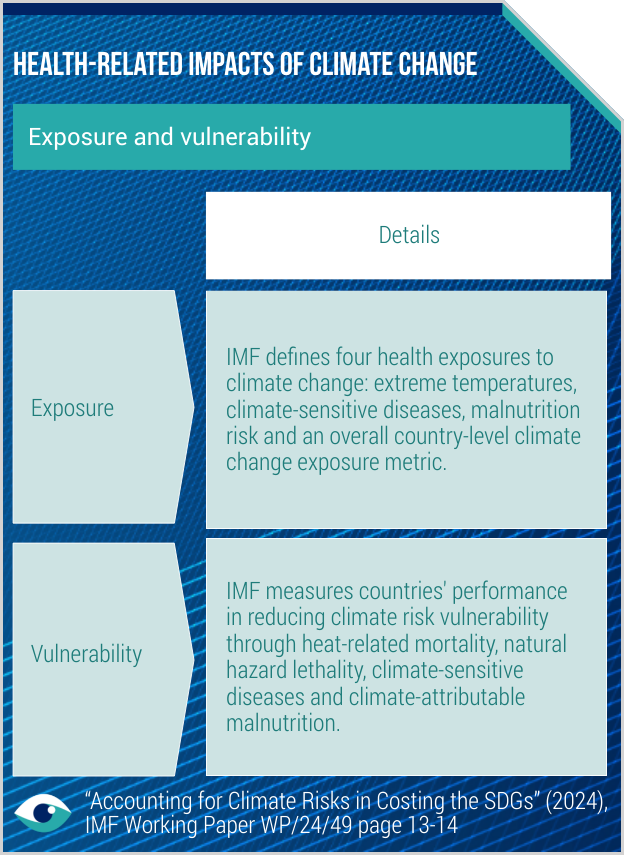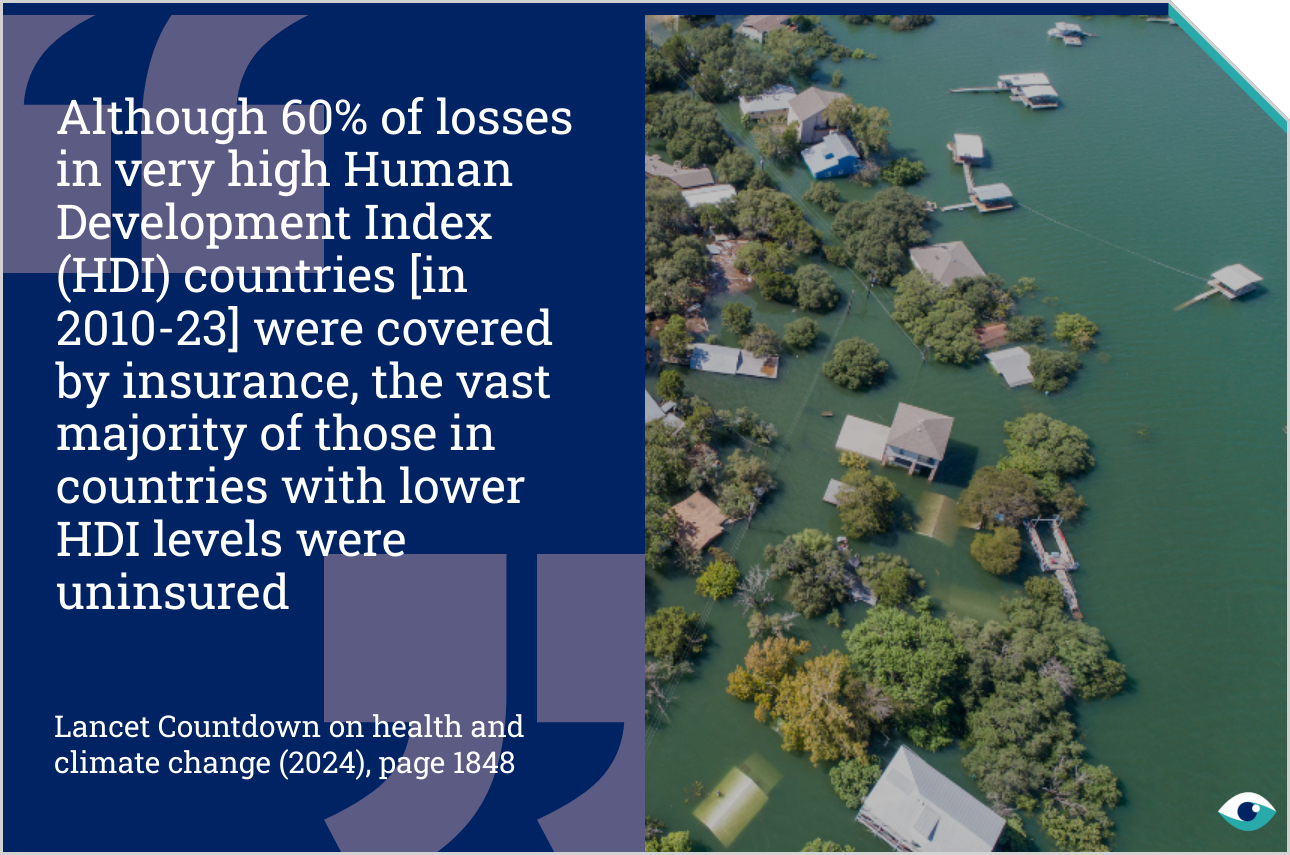The Lancet Countdown 2024 Report underscores the critical need for health-focused climate action and resilient healthcare systems. The health sector faces a twofold challenge: addressing climate change impacts whilst reducing its substantial emissions. The financial materiality of the health-climate nexus is evident, with decarbonisation of healthcare buildings often financially unattractive and severe convective storms concentrating risk in health supply chains. Healthcare entities must implement comprehensive climate resilience, encompassing infrastructure reinforcement and service adaptation, including surveillance systems for climate-sensitive diseases.

First, do no harm: Healthcare's climate conundrum
SDG 13.1 calls for strengthened resilience: healthcare supply chains must implement comprehensive climate strategies now
UN Sustainable Development Goals
Global (all industries)
AT A GLANCE
Climate change poses a dual challenge for healthcare: addressing vulnerabilities while reducing supply chain emissions.
This health-climate nexus presents significant financial materiality, with concentrated supply chain risks.
To align with SDG13, entities should implement climate resilience strategies, including infrastructure reinforcement and service adaptation.

Strengthening infrastructure
Healthcare organisations must prioritise investment in climate-resilient infrastructure to withstand extreme weather events and maintain continuous service delivery. Climate-related disruptions to fragile infrastructure and transportation systems place immense pressure on health systems. However, healthcare facilities face a complex challenge, as many existing buildings are structurally difficult and financially unattractive to decarbonise. Yet failing to adapt could rapidly render these assets stranded as financial institutions increasingly avoid financing “non-sustainable” properties.
Adapting business services
Healthcare providers must evolve to address shifting demands resulting from climate-related health issues, including heat stress, water and food-borne illnesses, allergies, mental health concerns and vector-borne diseases such as malaria, dengue, and Lyme disease. Integrating climate change into medical curricula at all levels is crucial, and sophisticated risk monitoring is an essential risk response.

Global South challenges
Climate change disproportionately affects business systems in the Global South. The disparity in insurance coverage between high and low Human Development Index (HDI) countries is stark, with 60.5% of losses covered in very high HDI nations. In contrast, the majority of losses in lower HDI countries remain uninsured. This leaves local economies to bear the brunt of physical and economic damage. The share of explicit healthcare finance in multilateral climate adaptation funding is less than 1%.
Climate risks and outsourcing
The direct operations of healthcare providers often involve 24-hour service delivery and high energy consumption, but the vast majority of climate risk exposure is in the health supply chain. With India capturing over 55% of the global outsourcing market share, outsourcing trends (though not specific to healthcare) expose large firms to potential supply chain risks from climate change, given India's vulnerability to extreme weather events, such as life-threatening heat and humidity spikes.
FURTHER READING
- Countdown on health and climate change - 2024 (The Lancet - registration required)
- Accounting for Climate Risks in Costing the SDGs (IMF Working Paper)
- Health systems response to climate change adaptation (BMC)
